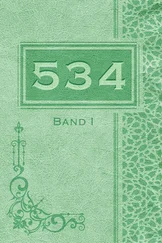The “trinket”-bearers had to run back and collect an adult corpse.
On such a hot day the Ukrainian henchmen feel very good.
They work left and right with their whips. Mikolai and Ivan, who work as mechanics on the motor that sends the gas into the chambers and also work on the generator that provides electric lighting for Treblinka, feel happy and in splendid shape in such weather.
Ivan is about twenty years old and looks like a giant healthy horse.
He is pleased when he has an opportunity to let off his energy on the workers. From time to time he feels the urge to take a sharp knife, detain a worker who is running past and cut off his ear. The blood spurts, the worker screams, but he must keep running with his litter. Ivan waits calmly until the worker runs back and orders him to put the litter down. He then tells him to strip and go over to the pit, where he shoots him.
Ivan once came over to the well where I and another dentist called Finkelstein were washing teeth. Ivan was carrying an auger. He ordered Finkelstein to lie down on the ground and drilled the iron tool into his buttocks. That was meant to be a joke. The wretched victim did not even scream, only groaned.
Ivan laughed and shouted repeatedly: — Lie still, otherwise I’ll shoot you!
Among the faithful Ukrainian helpers there are several heroes of this type. Etched in my memory is the Ukrainian we called “Zacke-Zacke” because when beating people he always yelled: — Zacke, zacke! (roughly: Pow, pow!) He has a special whip that is longer than all the other whips. Zacke-Zacke is on duty today. He has special privileges. He chooses the gate as his post. Here the entrance is narrow and it is convenient for him to beat people because he has everyone in his sight and it is impossible to avoid him. Zacke-Zacke is wild. Sweat pours down his diabolical face.
The workers cry and he beats. In such cases Dr Zimmermann, who knew Russian, would try to distract him. Sometimes that was the only remedy that would cause him to leave off beating people for a while.
After the episode with Loeffler, Finkelstein had to get up and go back to work. He was a healthy young man. At the first opportunity Dr Zimmermann took him into his room and washed and bandaged his wound. The wound healed; Finkelstein survived till the revolt.
Life in the barracks. The typhus epidemic. The Lazarett.
Our life is difficult and filthy. We work from 6.00 in the morning until 6.00 in the evening. After work we are so tired that we fall to the ground exhausted. Not even a drop of water is to be had in the barracks, because the well is far away in the open space and after work we are driven into the dirty barracks, which are surrounded by barbed wire. Around it stands a special watch to guard us…
Treblinka is guarded by 144 Ukrainians and about a hundred S.S. men. They keep an eye on us like precious jewels. We are counted three times a day. But although every one of us is bruised and battered and every part of our bodies ache, not one of us dares to report himself sick. It often happens that the newly arrived workers don’t know that you must not be sick and must never report during roll-call that you are ill. They are ordered to step out of line and undress on the spot. The murderers force them to do punishment exercises while naked, and then they are shot.
In Treblinka you must not be sick. Many of us cannot endure it and commit suicide. That is an ordinary event here. Every morning we notice that there are people hanging in the barracks.
I recall a father and son who had been in this hell for two days.
They decided to commit suicide. Having only one strap between them, they agreed that the father would hang himself first and after that the son would take him down and use the same strap to hang himself. That is in fact how it happened. In the morning both were dead and we carried them out so that the chief murderer could verify that the number was correct.
It sometimes happens that as many as seventy workers are brought to us from a new transport. They work for a few hours until roll-call. The next day, at roll-call, they report that they are sick. The section chief assigns them to carry corpses. He hurries them along and makes them carry three corpses instead of one.
They have to run fast, in step, and at the same time are brutally beaten on their heads. They are so exhausted that they cannot remain upright. After half an hour they are told to undress and are beaten some more. The murderers scream: — You dogs, you don’t want to work! Then they order them to go over to the pit into which the corpses of the gassing victims are thrown. Each of the murderers wants to have the privilege of shooting. They agree among themselves that each of them should shoot several people.
They are pleased with this amusement and aim at the head.
Seldom do two bullets have to be used for one victim.
In the early days, few of us knew each other, since every day new people arrived to take the place of those who had been shot.
Later the murderers changed their tactics. Shooting workers soon after their arrival meant that the work went badly, since no-one had time to become accustomed to it.
We live here in filth. We wear our blood-covered shoes and clothes by day and by night we put them under our heads. We sleep crowded together, each one pressed against his neighbour.
We have been wearing the same shirts we came here with and are covered with vermin. It is impossible to wash a shirt. The criminals shipped hundreds of waggons of clothing out of here, and we have nothing to wear. We suffer greatly from hunger. We receive only a small part of the food that the Jews brought with them. It reaches the point that the workers, finding a piece of bread in the chambers after the people have been gassed, do not hesitate to eat it.
In the middle of the twelfth month the work becomes more irregular. Fewer transports arrive and the work goes more slowly.
Many of the S.S. men are on leave. At the same time a typhus epidemic breaks out in the camp, and many of the workers go around with a fever of 40 degrees Celsius. They can hardly stand, but are afraid to report that they are sick.
At a roll-call, the deputy chief of the camp, Karl Spetzinger (an S.S. man with the rank of Scharführer ), announces that anyone who is sick can report to the doctor and nothing bad will happen to him. He will be able to remain in the barracks. At the same time he announces that the barracks located in the back row of the camp will be set up as a Lazarett (sick bay).
This arouses great fear, but nevertheless many people begin to report themselves sick because they can no longer stand. Over the course of several days the sick bay fills up. The number of sick people reaches about a hundred. I am among them. We lie there burning with fever. We receive no medical treatment. But it is good that we can lie there for a few days. The murderer has kept his word, just like all the criminal promises of the Germans.
After a few days, at 5.00 in the afternoon, several S.S. men give the order to expel ninety sick people from the Lazarett . The Ukrainians rush into the barracks and drag one person after another from their bunks by their feet. In about fifteen minutes the murderers have dragged out some eighty-odd sick people.
They are not allowed to get dressed but take with them the blankets under which they have been lying. Of about a hundred sick people, thirteen are left. The rest are driven to the open space. A few minutes later, gunshots are heard…
We, the remaining few, are convinced that the next day it will be our turn to be shot. We therefore report that we are now healthy, and the doctor orders that we be given underwear. Each of us has to strip and wash himself. The door and windows of the barracks are open, the temperature is 20 degrees below freezing, and we wash ourselves. I want to get dressed, but I cannot stand upright. The same is true of my comrades. It is 4.00 in the afternoon and at 6.00 we have to go for roll-call. We are kept standing for an hour at roll-call, during which time we have to sing. The greatest music-lover of them all is the murderer Karl Spetzinger.
Читать дальше
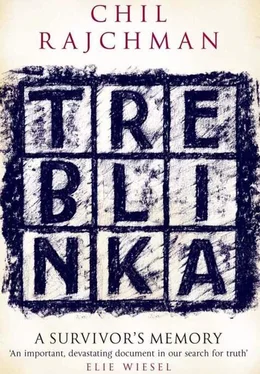



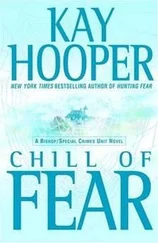
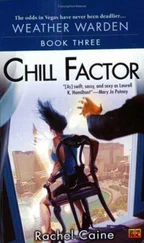
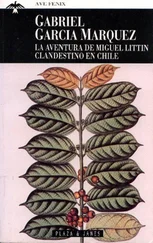
![Нед Виззини - Be More Chill [Расслабься] [litres]](/books/396819/ned-vizzini-be-more-chill-rasslabsya-litres-thumb.webp)


